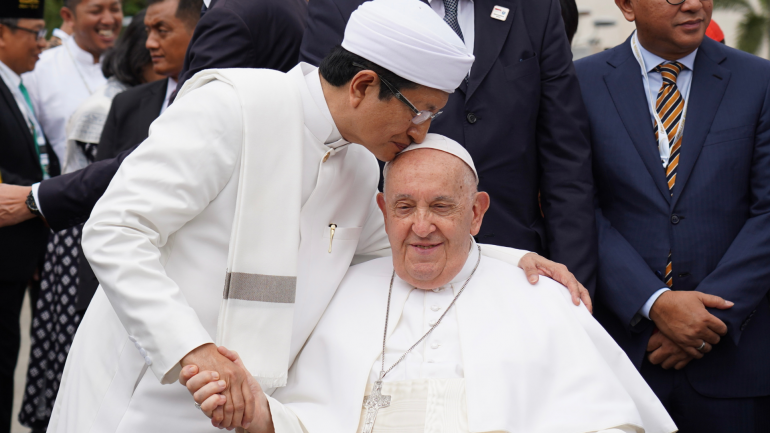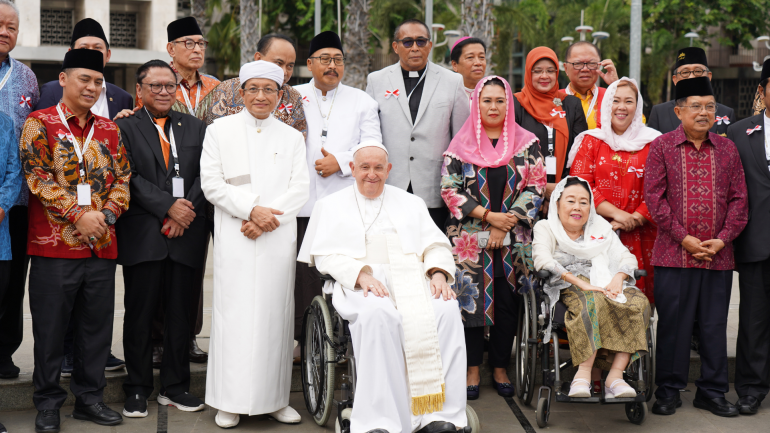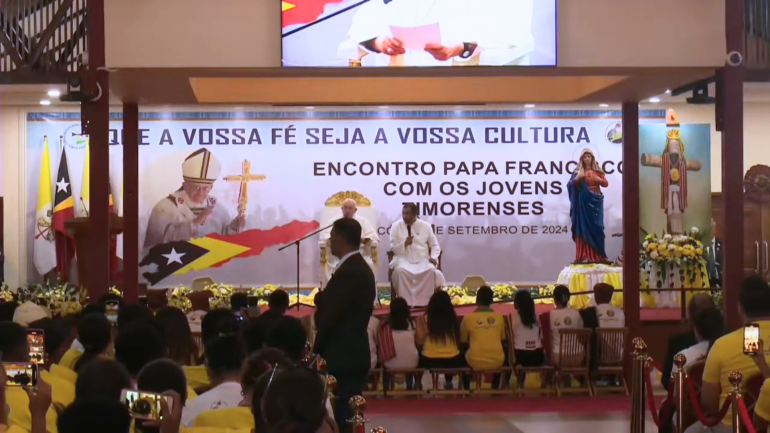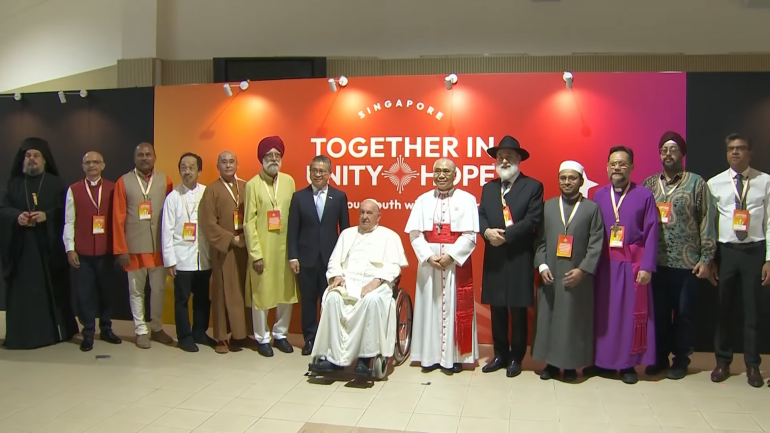Pope Francis highlights role of Marginalized Communities in building interfaith harmony

During his weekly General Audience, Pope Francis reflected on his recent Apostolic Journey to Asia and Oceania, emphasizing the importance of fostering unity among diverse religious and cultural communities, as reported by Vatican News.
The Pontiff praised the vibrant faith of Christians in Indonesia, Papua New Guinea, Timor-Leste, and Singapore, while calling for greater global attention to the unique contributions of marginalized communities in promoting peace.
A Church Beyond Borders
Pope Francis opened his remarks by reminding those gathered in St. Peter’s Square of the global nature of the Church.
"The Church is much larger and more alive!" he exclaimed, reflecting on the living faith he encountered across his travels.
The Pope also noted that while the Church is often seen as Eurocentric, his visit to these four countries revealed a Church that is growing and thriving in unexpected corners of the world.
Having met with priests, nuns, and laypeople, Pope Francis emphasized that the Church expands "not by proselytizing, but by attraction."
His experience was a testament to the diverse ways the Gospel is being lived out in various cultures, often among communities on the margins.

Indonesia: A Model of Harmony amidst Diversity
Reflecting on Indonesia, where Catholics make up only 3% of the population, the Pope highlighted the country's commitment to fostering religious coexistence.
“Faith, fraternity, compassion,” he said, referencing the motto of his visit, which underscores Indonesia’s ability to harmonize differences.
Pope Francis praised the nation's ability to bridge religious divides, pointing to the symbolic connection between Jakarta’s Cathedral and Asia’s largest mosque, which are linked by an underpass.
"I saw that fraternity is the future," he said, underscoring the potential for peace and mutual respect in a country with the world’s largest Muslim population.

Papua New Guinea: A Laboratory for Integral Development
In Papua New Guinea, the Pope was moved by the missionary spirit that continues to thrive, particularly in a nation still grappling with economic challenges.
He highlighted the nation as a "laboratory" for integral development, where the Gospel inspires care for both people and the environment.
Pope Francis spoke of the "songs and music of the young people," which gave him hope for a future free from tribal violence and colonialist dependencies.
His call to focus on fraternity and environmental stewardship was a clear nod to the role that less-developed nations can play in leading global change.

Timor-Leste: Joy Amidst Suffering
The Pope’s visit to Timor-Leste, the most Catholic country in Asia, served as a moment to reflect on the resilience of a people who have endured immense suffering.
"I was struck by the beauty of those people: a people tested but joyful, a people wise in suffering," he shared, emphasizing how the Timorese continue to teach their children to smile despite hardships.
His reflections echoed the example of Pope John Paul II, reinforcing the powerful relationship between faith and culture in shaping a hopeful future.

Singapore: A Minority Faith in a Modern Hub
Pope Francis concluded his reflections by turning to Singapore, a country known for its economic prowess but where Christians remain a minority.
Even in this context, the Pope found a vibrant faith community actively working to promote harmony among the diverse ethnicities and religions that make up Singaporean society.
“Even in wealthy Singapore, there are the ‘little ones,’” he noted, referring to those who follow the Gospel and become "salt and light" in a fast-paced, modern world.
A Journey of Gratitude and Hope
As he concluded his reflections, Pope Francis expressed his gratitude for the opportunity to embark on this journey, his 45th abroad.
The Pontiff reaffirmed his belief that the vitality of the Church is not confined to any one region, but is alive and growing in unexpected places, particularly among marginalized communities working toward peace and fraternity.
"The Church is much larger and more alive," he reminded those present, thanking God for the living faith he encountered and extending his Apostolic Blessing to all the communities he visited.
Radio Veritas Asia (RVA), a media platform of the Catholic Church, aims to share Christ. RVA started in 1969 as a continental Catholic radio station to serve Asian countries in their respective local language, thus earning the tag “the Voice of Asian Christianity.” Responding to the emerging context, RVA embraced media platforms to connect with the global Asian audience via its 21 language websites and various social media platforms.














